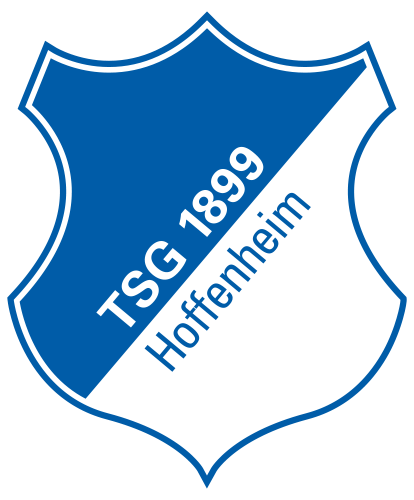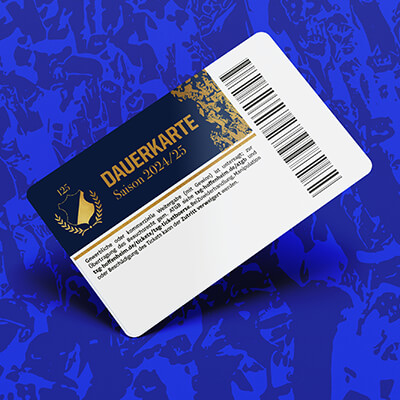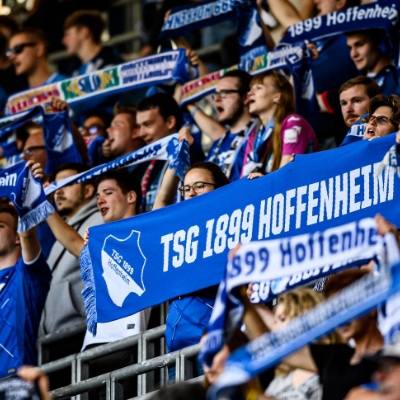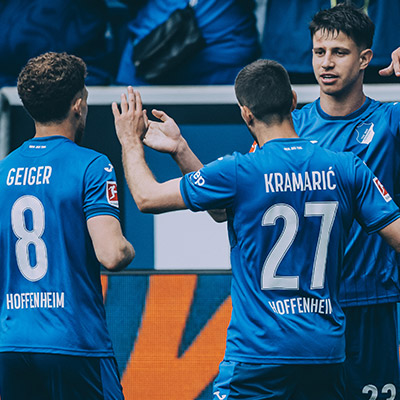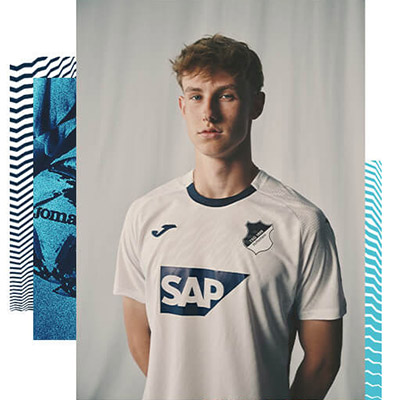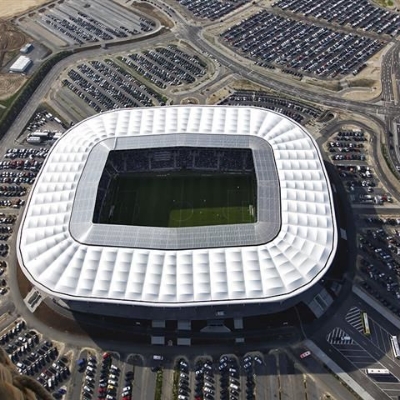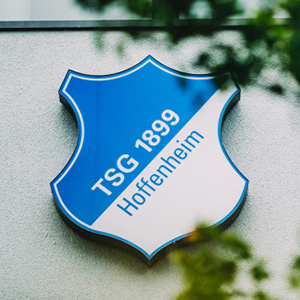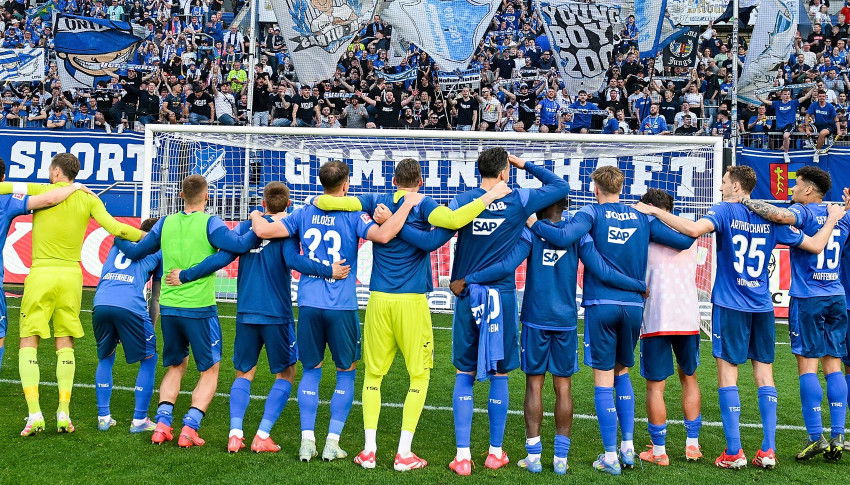"We are fiercely ambitious"
How disappointed were you with the team's ninth-place finish in the Bundesliga after the 2-4 loss away at Mainz?
Peter Görlich: “If you’ve got a realistic chance of making it into the Europa League, then it’s certainly a little hard to take, and that’s normal of course. Nevertheless, it wasn’t the end of the world. With the beginning of the new season, we will have the opportunity to achieve something exceptional again, and that’s what motivates us. You can’t always have it your own way. The reality is we played a really good season, but we didn’t always get the results which we deserved. You have to learn from that and ask yourself: What happened and why? Where can we improve? For me, finishing ninth is more of an incentive for us to avoid just missing out on our targets in future again.”
This season wasn’t just about matchday 34: it was also the club’s first ever foray into the UEFA Champions League.
Frank Briel: “It was an amazing experience for the whole club. Irrespective of how things transpired on the pitch, I am very proud of the account we gave of ourselves, and not only with regard to organising the fixtures. We have also been able to establish international connections and strike up partnerships. Furthermore, we have also been able to increase UEFA’s and our opponents’ awareness of TSG Hoffenheim as a club. While that’s a process which takes place away from the turf, it’s something which also attests to our development as a club. Everybody who was involved has done an excellent job.”
Görlich: “It sounds very glamorous when you’re going to play in a pan-European competition, but it’s ridiculously challenging. Making sure that all of the processes involved run as smoothly as possible and that we can effectively deal with the greater challenges entailed are dilemmas which we have to solve. The established clubs certainly have an advantage over us in that respect. Soon after the season had begun we announced that the manager would be leaving us at the end of the year. It wasn’t easy for him to be able to handle that, especially as expectations had risen as well, but it wasn't easy for us as a club either. In the end it worked out well, which is why ninth place feels like such a disappointment. But we know what we’ve achieved and also that we have the potential to improve.”
Over the last three seasons, TSG has developed in a way that previously would have been unthinkable. After almost getting relegated in 2016, there followed the Europa League and then the Champions League, while the club just missed out on a European spot on the final matchday this season. Dietmar Hopp has suggested that a spot between sixth and ninth is now the benchmark. What will you be satisfied with?
Briel: “The framework hasn’t changed of course and we should always remind ourselves of that. That’s why the achievements of the last three seasons are thrown into even sharper relief. We’re still operating with the same set-up and are positioned in a region between seventh and tenth when you consider the stadium, our turnover and our catchment area. We’re located within a decentralised and rural structure here as opposed to a large city. We’re still relatively new to the Bundesliga, even if we are going into our twelfth season. As the management, we are very clear about who we are and where we come from. If you’d said to us at the beginning of the season that we’ll finish between sixth and ninth, we would have taken that straight away as that's the level we're at.”
"We are fiercely ambitious"
You said that the world hasn’t ended, but we’ve noticed a certain amount of dissatisfaction among fans. How do you deal with raised expectations?
Briel: "We’re fiercely ambitious, but if you look at all of the objective criteria, we simply don’t have a set-up which will let us drive to the top of the winner’s podium, to use the language of Formula 1. Only if things have gone our way, when the strategy was the right one, when the pit-crew have done their job right and the race has gone well are we then in a position to be competing at the top. Nevertheless, the engine we have means that we really should be somewhere between fifth and ninth. That’s our attitude here and our objective approach, even if we are highly ambitious. Nonetheless, we can’t control how the fans feel. It’s only natural that participation in the Europa League and the Champions League has heightened expectations. It would certainly be strange if the fans said: ‘The most important thing is that we’re still in the division.’ Our job also entails making it clear that we want to be in Europe, but have at least nine rivals with the same goal, seven of whom have significantly more cash they can use in pursuit of that target.”
You’ve earned significant sums through the transfers of Kerem Demirbay and Nico Schulz. The fans now want TSG to invest big and bring in a high calibre player. How do you deal with that?
Briel: "They know what our credo is. We need a surplus from our transfer business so as to be able to develop further at our level. TSG is not a club that’s going to make some kind of superstar signing. We can’t and don’t want to imagine investing 20 or 30 million in a single player over the next few years.
Görlich: "We build on the internal transfer market, which is to say, the players we develop ourselves at our own academy. That means we need to be better than others as regards the substance of what we teach. We also sign players with lots of potential who are likely to take the next step forward in their career with us and increase their market value significantly as a result. The buy-out fee for Kerem Demirbay alone shows that TSG is synonymous with developing players further so that they then become attractive to the putative ‘big’ clubs or wealthier ones.
Briel: “We’ve definitely worked our way up the oft-cited Bundesliga food chain. It’s a testament to your success when your players become attractive to other, even bigger clubs.”
"We need to chart an intelligent course"
And influential players will be poached from TSG sooner or later, after which they need to be replaced by the club.
Briel: “But that’s another reason why we can’t let ourselves go crazy. It’s a question of authenticity, our TSG approach. We will never invest the money that we earn from transfers one to one. The thing we need to do is to chart a more intelligent course, one with a little bit of imagination. That’s also a little bit riskier of course.”
Julian Nagelsmann has left the club after three and a half years having served as a manager who has certainly moulded the club in his image. To what extent are you expecting an upheaval with the arrival of Alfred Schreuder?
Görlich: "We have had three successful years and it will be difficult to follow in his footsteps. But Alfred will bring his own style with him, and certainly won’t copy or imitate anyone else. He is certain to make his own mark. We’re getting a type of manager who has a different public image and who will bring a different communication style with him into the club. I think the term upheaval is too fearful. Every season brings upheavals because there are always changes to the squad. I’m very confident that Alfred will write another successful chapter in our history.”
Briel: "On 29 July, everything will be rest to zero when training commences. Nevertheless, we’re still committed to consolidating our position. We’re ambitious and want as much success as possible. Alfred Schreuder will not and certainly doesn’t want to imitate such a vibrant personality as Julian’s. Quite simply, he’s different. But it's not as if he were someone coming from outside the club with completely different ideas who will then lay waste to everything we’ve built here. He participated in what was created here, of course. Because of the type of person he is and his age, he’s certainly not running the risk of being labelled the new Nagelsmann.”
Görlich: "He's certainly not an extrovert." (laughs)
Briel: "And we'll certainly have fewer vehicle models at the ground." (laughs)
Julian Nagelsmann has previously said in a SPIELFELD interview that people who have held back for his sake will be required to step up after his departure, for example, the CEOs and Alexander Rosen. In his view, these are the people who could come to be the face of TSG more strongly.
Briel: "Julian was someone who filled the stage all by himself. His omnipresence and determination to steal the show were good for us because of the image he cultivated and the fact he was a polarising figure. But we here in the club’s management won’t be giving extra interviews to fill a vacuum that has supposedly been left behind. The club is getting a new face, and that means a whole new face. When I give a building a fresh lick of paint after a certain amount of time, there’s a new colour, atmosphere and effect. Nevertheless, the house needs to feel homely.”
Görlich: "It is of course a question of whether you want to occupy a niche or define a space. Julian Nagelsmann certainly opted to define a space for himself.”
Was it exhausting for you at times?
Görlich: "I firmly believe that Julian Nagelsmann’s success here was because of a system. You have to let yourself in for that and understand what you’re dealing with. That’s always the case. A person does their job, and it’s our role to provide support, regulation or encouragement from time to time. And that, ultimately, is what management is tasked with.”
You say that Julian Nagelsmann defined the space. The question is whether TSG Hoffenheim would rather occupy a niche.
Görlich: "Making yourself smaller than you actually are is something that always resonates with TSG a little bit. However, we’re not a club that occupies a niche, but we are in fact defining spaces in a couple of respects. As before, we’re a club that trains players and introduces its own academy products into the senior squad. The fact that we do good work, interpret things differently and go about our daily business in an alternative way as compared with other clubs is closely linked to us defining space. That’s how we’ve come to be regarded by the international competition and these are some of the attributes we stand for.”
Briel: "As a club that is competitive in one of the best leagues in the world as well as on the international stage, it’s clear that we don’t occupy some kind of niche. For us, the focus is on getting that little bit extra out of the team so that they can reach new and demanding targets, something we’ve managed to do in the last few years. We cannot guarantee that we’ll continue to do so, but that’s the challenge we set ourselves. Every day.”



